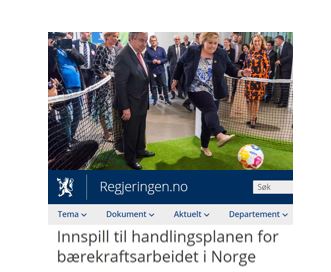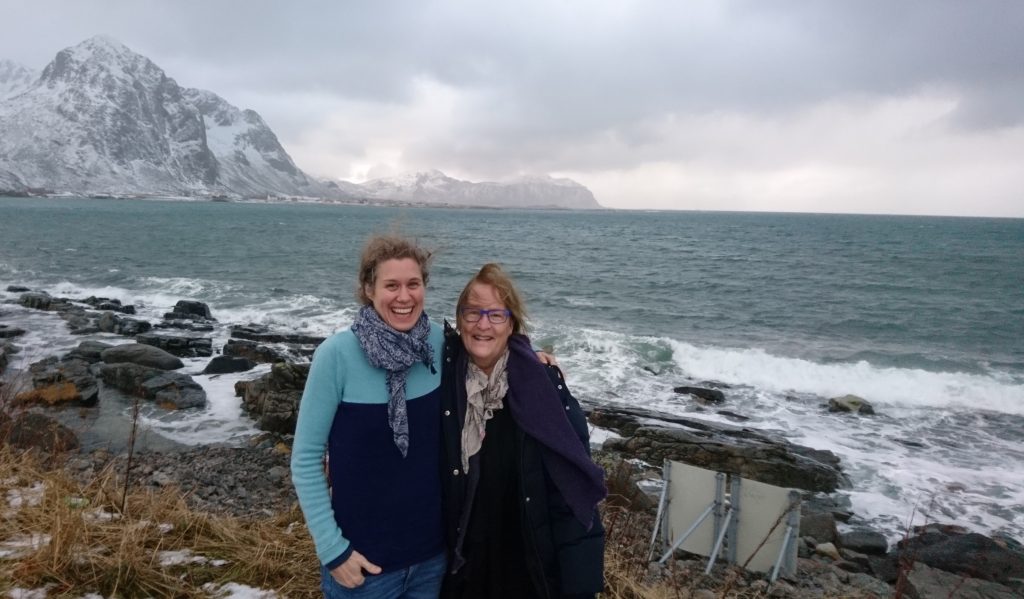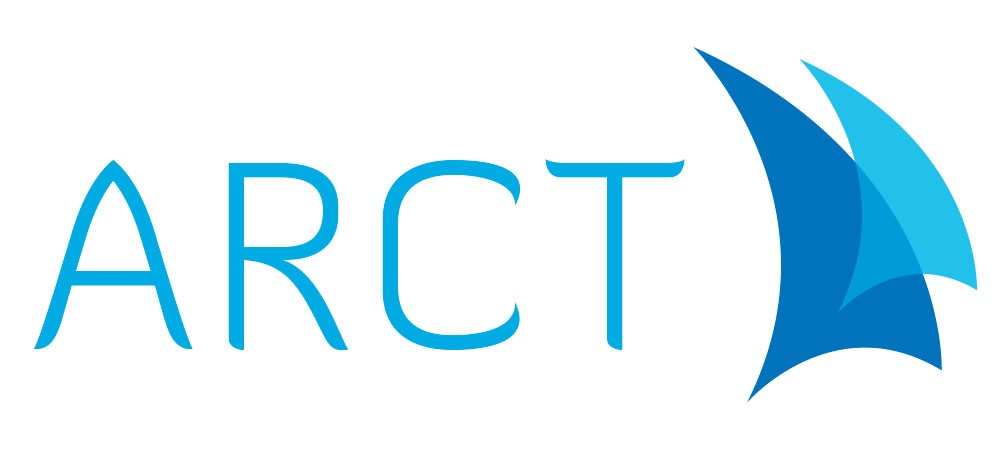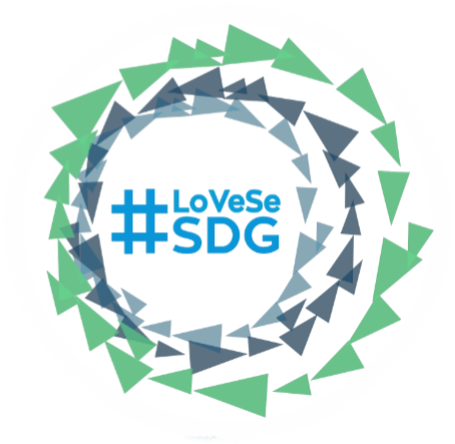
Proposal for the National Action Plan on Sustainability
| 30/11/2020 | Innspill til nasjonal handlingsplan for bærekraftsarbeidet |
The University of Bergen, SALT Lofoten and ARCT made a joint Proposal for the National Action Plan Sustainability’ (Translated from Norwegian: Innspill til handlingsplanen for bærekraftsarbeidet).
We are tree female sustainability principals from the University of Bergen, ARCT AS and SALT Lofoten AS, who cooperate across academia and business to locate and report on the UN Sustainability Goals.
We support the Office of the Auditor General’s report of 17 November, which states that it is “highly reprehensible” that Norway has not identified which sub-goals we are to prioritize in Norway.
There is a lack of a national reporting format for the sustainability goals. Even the Norwegian business community is asking for1 and says it is high time to speed up concrete national measures for sustainability in one of the world’s richest countries.
It must be possible to give a head of state like Erna Solberg better tools than a SDG football to show commitment to the sustainability goals!
The public and private sector need better management tools to report on compliance with UN goals in a transparent and verifiable manner.
There are several leading research environments in the Nordic region within sustainable development, including the Stockholm Resilience Center, which since 2016 has been on the field with priorities for the sustainability goals2 and UiB with its UNESCO Chair3 and project portfolio within sustainable management. It is a major dilemma for academia that a publicly funded research-based competence is developed without real actions based on this competence is taken by politicians.
We provide the following concrete proposals to the National Action Plan for Sustainability Work:
- We must implement local indicators in Statistics Norway (SSB), and work concretely, purposefully and interdisciplinary across academia and the business community in order to put in place better sustainability reporting, preferably map-based. There is a need for specific recommendations on which indicators and sub-goals are relevant for Norway, preferably also relevance per industry.
- The Norwegian Parliament (Storting) and the Government need to clearly state how the sustainability goals are to be located and how compliance with the UN goals are to be reported.
- We would like to see better methods and tools must be developed. Our recommendation is that we work to automate the reporting work as much as possible!
- We need a ‘marching order’ with clear guidance from the Storting and the Government as soon as possible!
Problem description
We understand that many challenges and dilemmas will arise in the work to locate sustainability. An action plan must address the fact that the UN goals overlap in several areas. Municipalities and businesses want clear guidelines for how the sustainability goals are to be used, for example in spatial planning and in annual sustainability reporting. Bergen Municipality has formulated the goal of a national action plan for sustainability in a sensible way:
“The action plan should first and foremost be about how the state level should work nationally and internationally to achieve the sustainability goals.” Furthermore, they write that
“The action plan must be able to handle the fact that the sustainability goals have conflicts within and between them” and
“It would have been useful if the action plan made visible which sub-goals are most relevant for the various actors” (our highlighting). Both municipalities and business actors in public and private sector wish to spend as little time as possible on measurement and reporting. We must develop methods and tools so that as much time as possible is spent translating the goals into real action. Our proposal supports several other proposals to the National action plan, for example UiB Energy Director Kristin Guldbransen Frøysa who writes that:
“It is important to concretize the sustainability goals in a Norwegian context” and UiB’s UNESCO Chair Professor Inger Elisabeth Måren writes that we must ensure a holistic approach to the sustainability goals. The University of Bergen has a high level of competence in sustainability across ecology, law, social sciences and philosophy of science, as well as the new Center for Sustainable Land Use (CeSAM), which focuses on evidence-based decision-making and consolidation of interdisciplinary research and education.
#LoVeSeSDG project and digital tools to report sustainability
In our ongoing project “Locating sustainability goals for Lofoten, Vesterålen and Senja” (#LoVeSeSDG, funded by MILJØFORSK, the Norwegian Research Council 2019–2022), we have specifically identified that the municipalities and counties need a common digital tool for reporting activities and work towards specific Agenda 2030 sub-objectives. In our research projects we cooperate with several municipalities and with business actors in the public and private sectors. In Andøy Municipality in Vesterålen, we cooperate with their spatial planner and with public and private sector (research, tourism, education, fisheries and aquaculture). Our conversations with them confirm that there is a need for developing methodology and to tailor tools that enable reporting of compliance with the UN targets, preferably map-based digital tools. Our ambition is to develop a tool, such as a “SDG Wizard” that delivers a methodology in a software that solves the complex task of scoring compliance with sustainability goals using easy-to-answer question stored in a question bank
We therefore would like to enter into a dialogue with the Ministry of Local Government and Modernization as well as municipalities that wish to try out and give feedback to such a tool.
We believe it must be possible to give state leaders like Erna Solberg better tools than a SDG soccer ball to show commitment to sustainability goals!
Med vennlig hilsen,
Dorothy Dankel på vegne av Karin Berentsen, ARCT, og Brita Staal SALT Lofoten
For more information, please refer to SALT AS , https://salt.nu/,and the LoVeSe-SDG project, https://www.uib.no/en/sdgbergen/126755/researching-sustainable-management-natural-resources

Fresh winds in South Lofoten. Dorothy Dankel and Karin Berentsen


